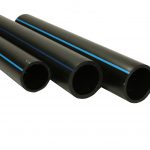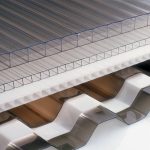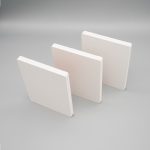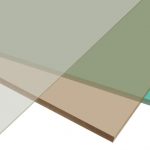Chemically hailed from terpolymers, it is the polymerization of Acrylonitrile, Styrene monomers and Butadiene. It combines the properties of all the three different monomers to form a single property. While it also blends with other materials such as polycarbonates, polysulfones, and polyvinyl chloride.
ABS holds an outstanding impact and mechanical strength which makes this a tougher product.
It is a low-cost plastic material containing outstanding impact resistance, thermoforming characteristics, and machinability. An excellent choice for machine housing, point-of-purchase display, and retail store fixtures.
The plastic can be used for general-purpose, fire-rated, machine grade, orthotic grad, FDA, UUV resistant, FDA compliant grade, and scratch resistance grades that differs in color, and textures.
ABS applications
- Used in instrumental panels.
- Machine covers, grounds and housings.
- Prototypes and models.
- Point of purchase displays.
- Display base and storage cases.
- Tote bins, trays, and displays.
ABS properties
- Impact resistance
- Easy to machine
- Easy to thermoform
- Easy to join with adhesives
- Low cost
- Strong, stiff and durable
Standard Sizes
Sheet
Thickness:
0.060 in – 4 in
Dimensions:
12 in x 12 in – 48 in x 96 in
Rod
Outside Diameter:
0.250 in – 6 in
Grades
- Fire-rated
- General-purpose
- UV resistant
- Machine grade
- Scratch-resistant
Note: Length, width, diameter, the thickness can vary by brand, manufacture, and grade.
Additional ABS properties
Rigid ABS material – It is rigid combined with the properties that make it ideal for a wide range of applications. It is stiff, has strength, with good performing characteristics of high and low-temperature performance with great formability.
Fire-rated property – It is a fire-rate alloy ABS/PVC alloy material often used in architectural, electrical and transportation applications.
Excellent formability – The rigid product is manufactured to meet the aviation requirement, hence its lightweight, stiff, contains high tensile, and ductility.
Thermoforming characteristics – The presence of thermoforming characteristics makes the ABS sheet usable in fabric brace stiffening panels and back braces.
General ABS Properties
| Properties | Units | ASTM tests | ABS | ||
| Tensile strength | Psi | D638 | 4,100 | ||
| Water absorption | % | D570 | 0.30
|
||
| Izod impact | ft-lbs/in of notch | D256 | 7.7 | ||
| Flexural modulus | Psi | D790 | 304,000 | ||
| Maximum temperature | °F | – | 160 | ||
| Heat deflection temperature | °F | D648 | 177 | ||
| Coefficient of linear thermal expansion | in/in/°Fx10-5 |
|
5.6 |
Note: Value may differ accordingly to the chosen brand.







